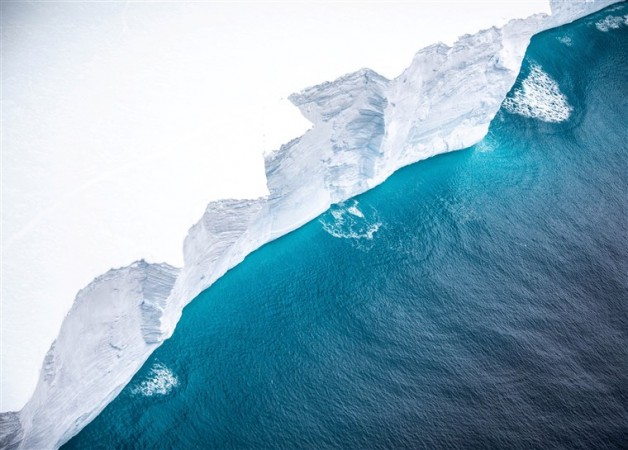
The largest remaining chunk of the world's biggest iceberg that broke away from the Antarctic Peninsula two-and-a-half years ago could strike land this month. The iceberg larger than Rhode Island is closing in on South Georgia Island, a British territory in the South Atlantic Ocean. The iceberg, designated A68a by the National Ice Center, is being steered by ocean currents to a position closer to the island. This collision may cause major damage to wildlife if it becomes grounded near the island.
According to David Long, director of the centre for remote sensing at Brigham Young University who has been tracking the iceberg, the iceberg is more than 650 feet thick, with about nine-tenths of it underwater. Above the water, the iceberg features steep cliffs along its edges. In an email, Long said that if this iceberg does hit the island, it will hit the undersea shelf and ground offshore. Note that the island and iceberg are about the same size. "I originally thought that A68a would pass south of South Georgia Island, then be swept back to the ground on the east side of the island like previous similarly large icebergs," he said.
If the iceberg , become grounded just off the coast, it could become difficult for the millions of king and macaroni penguins, seals and seabirds to find food, such as fish, forcing them to travel long distances around the iceberg. Blue whales feed just off the coast of the island, and this could complicate their access to krill.
Also Read:
Biden and Harris named Time mag's 2020 person of the year
Hungary will seek to annul rule-of-law declaration in EU court: Justice Judit Varga
WHO applauds India, Fitness Ka Dose Aadha Ghanta Roz campaign